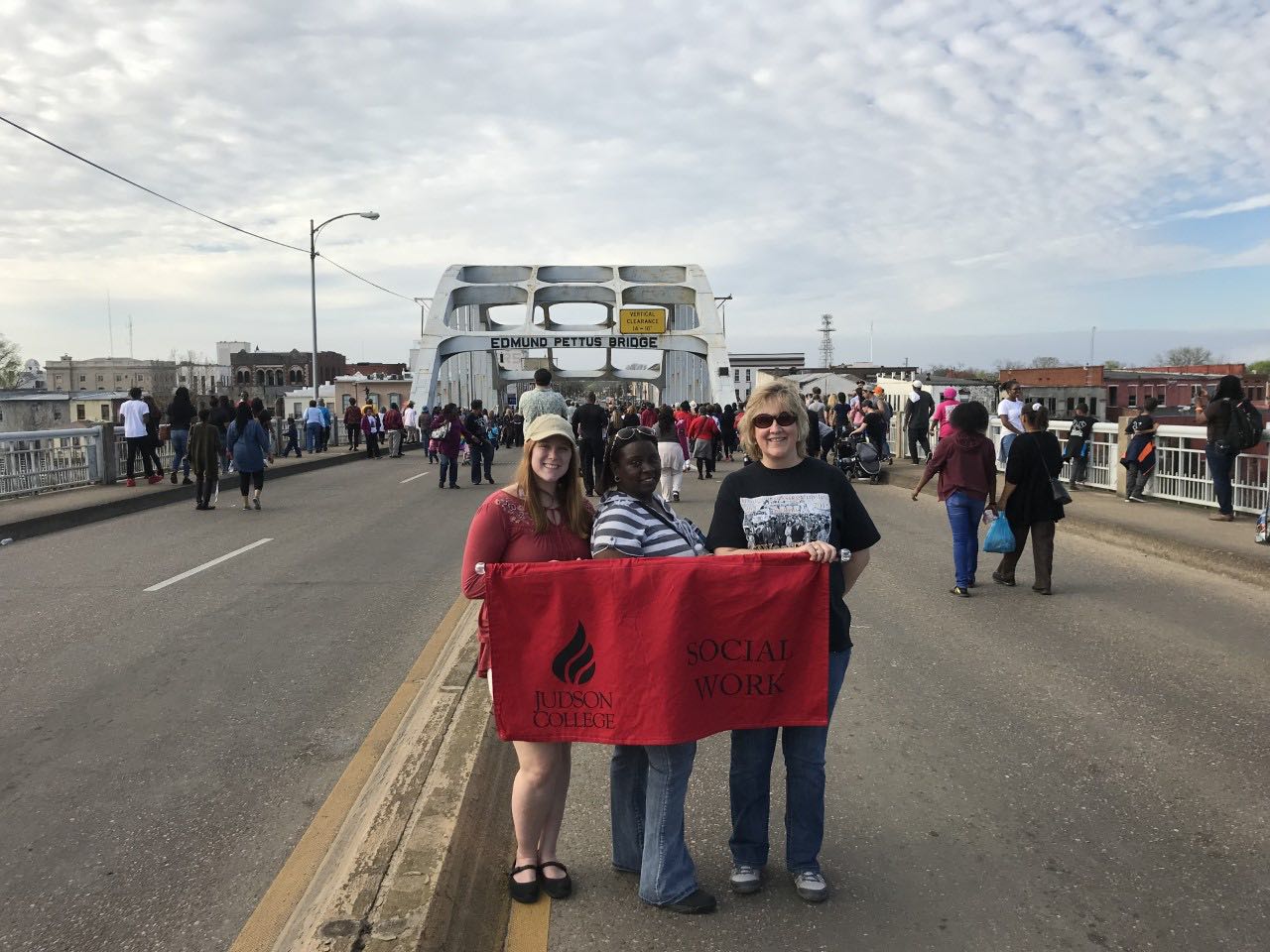
Every year, during the first weekend of March, tens of thousands of people congregate in Selma, Alabama, to honor and celebrate the universal concepts of freedom and acceptance. Known as “The Annual Pilgrimage to Selma,” the Bridge Crossing Jubilee memorializes “Bloody Sunday,” an important historical event in which a group of over 500 African American demonstrators joined together and demanded the right to vote. Crossing the historic Edmund Pettus Bridge, freedom fighters were brutally attacked by state troopers. Many demonstrators were hospitalized and treated for severe effects of tear gas. A result of the untimely death of Marion Deacon and activist, Jimmy Lee Jackson, “Bloody Sunday” later resulted in the march of Reverend Martin Luther King, Jr. and over 3,200 civil rights protesters as they journeyed to Montgomery, Alabama. King’s march hastened the passage of the Voting Rights Act of 1965.
As stated by the website, the Jubilee’s goal “is to inspire people of all ages and ethnic backgrounds to respect and appreciate the power of their vote.” Including various events, such as a mock trial, a battle of the bands, a Jubilee parade, a Miss Jubilee pageant, and a theater festival, the annual Jubilee offers an enlightening and life-changing experience for everyone.
While people from various walks of life joined together at this event, students of Judson College were also in attendance. Student Jessica Thompson had the opportunity to cross the legendary bridge this year with fellow classmates for the first time. “For me, it was an eerie experience that has lingered with me,” Jessica said. “It gave me a new insight and visual to these experiences I’ve really only talked about in classes.”
“It’s an important part of being a well-rounded person to remember history. To not just remember it as an abstract thought but how that history impacts how we live together today,” said Ms. Dennison, assistant professor of Social Work, who attends the Jubilee every year. “The result of activism of the civil rights movement, in Selma in particular, really led us to be a freer and fairer society for everyone. We still have a long way to go, but it is the commemoration of those events that lead us to look around now in our contemporary life and say where are the gaps? Where are the barriers?”
Previous attendees also include Judson’s own athletic director, Ms. Marsha Ford, and student Nicole Stewart. “It was very inspiring to experience the dedication of the people who marched. It was crowded, but to be able to see how long the actual march was was very insightful,” Nicole said, remembering her past experience with the Jubilee’s Bridge Crossing event.
“To be able to see those people come and talk about things that actually affect us and how that when adversity comes, we can come together as a country to make a change. It’s uplifting. It’s encouraging. It inspires you to push farther and continue to do good, even when sometimes it may be hard,” Ms. Marsha Ford stated.
The annual Jubilee serves as a platform in which people from different backgrounds are able to hear personal stories from surviving activists from this important moment in history. It offers a chance to celebrate the brave people who would have given their lives to provide freedom to those who had been silenced in our country. The Jubilee has also brought forth prominent figures and celebrities, such as former presidents Barack Obama, Bill Clinton, and George W. Bush, as well as Mrs. Coretta Scott King, Rosa Parks, Senator Hillary Rodham Clinton, and Congressman George Lewis, an honorary recipient of a doctorate of letters from Judson College.
According to Dennison, it’s as important now as it was then for students to be involved. The active participation of students in the civil rights movement led to important milestones in history, such as the creation of the Student Non-Violent Coordinating Committee, or SNCC, which served as a platform to provide younger African-Americans with a voice. “The students were a big part of the civil rights movement. The young people really pushed for those changes to happen because they believed that ‘the present is not the future we want to have.’ The reenactment of the Bridge Crossing is in some ways a celebration of how far we’ve come, but it’s also paying attention to issues of the day and not letting the hard-fought successes slip away,” Ms. Dennison stated.
In attending events, like Selma’s Bridge Crossing Jubilee, students obtain an understanding of past efforts and are able to relate to other points of view. “You hear the stories and you’re able to connect. You’re able to put yourself in that place and think through those ideas. It’s a good experience for anyone that goes there, if you’re willing to just open your mind to where society was at that time,” Ms. Marsha concluded.
After walking in the steps of so many before her, Thompson stated, “To say I felt inspired after that Bridge Crossing would be an understatement. That experience was so moving and encouraged me to stay active with social movements and to never be afraid to fight for social justice no matter the cost.”